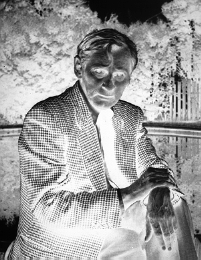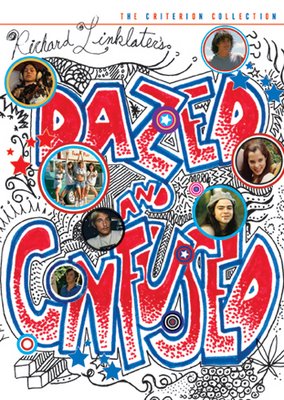Elk joke

William Gaddis once told me a joke. Not only me but I was there, a hot summer night several years ago in the Senate House at the University of London, so monstrously ugly a building it was used as the Ministry of Truth for the film version of 1984. Gaddis was in town, not exactly promoting his latest book, A Frolic Of His Own, the opening line of which goes
Justice? -You get justice in the next world, in this world you have the law.
In the book a character contrives to drive over himself with his own car and comes up wanting to sue someone.
Gaddis didn't read from the book at the Senate House or from any of his other books, namely The Recognitions, JR, and Carpenter's Gothic. He hated author readings, writers performing. He thought they were demeaning to the writer and the work and the reader as well. He never gave interviews either, for probably similar reasons. After the commercial and critical failure of The Recognitions, some people of a conspiratorial nature thought that he changed his name to Thomas Pynchon.
The Recognitions came out in 1955, was over 700 pages and seemed to be about authenticity, in art, life, human feeling. This was a preoccupation of New York artists in the fifties, authentic experience, and would carry over into the sixties folk scare, as Dave Van Ronk called it, how authentic the music was seemed to matter; were you authentic? In The Recognitions there's a lot of forgery going on- forged Old Masters paintings, dollar bills, forged personalities. Authenticity is scarce on the ground, propaganda all is phony. Almost everyone is playing some sort of game and when real feeling comes up it knocks you sideways-what the hell is that doing here?
There was a big gap between The Recognitions and Gaddis' second book, JR, twenty five years, and in that time, rather than change his name to Thomas Pynchon, he made a living working in corporate New York public relations, writing scripts for industry films, speeches for executives, press releases. JR is full of New York Corporate Man and their close relatives in government and military. The opening line in JR is
-Money...? in a voice that rustled.
Those dashes mean dialogue just like in Ulysses. In fact virtually all of JR, again over 700 pages, is written in dialogue and tells the story of eleven year old JR who, operating from a pay phone in his elementary school, builds up a paper fortune using the kind of methods that would get people like Michael Milken and Ivan Boesky in trouble ten years later. One character is a failed novelist, forever working on a book with no end in sight. He refers to his book as an old man waiting for him at home, sitting in a chair, banging his stick, drooling. The author has to go over to him and fluff up his pillow, keep him alive.
Robert Altman's film Nashville came out in 1975, the same year as JR. Only Altman could have made a film of JR, maybe he still could. He would have to replace JRs' phone booth with a personal computer. And here's another thing- a blog (unlovely word) these days is what those small press publications used to be years ago, magazines and papers would spring up in cities with a big bohemian scene and in New York in the fifties Jack Green started his own newspaper and called it newspaper. Jack Green didn't use punctuation, not even full stops. He just made a few extra spaces to signify the end of a sentence. He made his living as a freelance proofreader funnily enough. In 1962 Green devoted three entire issues of newspaper to the defense of The Recognitions from the US reviewers who, almost to a man, trashed it. Green thought them all lazy, complacent, fools and titled his attack on them Fire the Bastards! The Dalkey Archive published these articles many years later as a book. Jack Green was (is?) a mysterious figure, his name isn't Jack Green for one thing. Maybe he blogs, might even be the patron saint of bloggers. Does anyone read this stuff?
Back at the Senate House the man behind the event, the US cultural attaché, so often a front for spies, was saying how well a recent visit from Joseph Heller had gone, much better attended than tonight he said, pouring out the white wine to all comers. Everyone went inside the lecture room and there was Gaddis at the desk down front, looking just like Kirk Douglas, shuffling through some papers, reading out bits of stuff. He settled a few old scores. Apparently the critic George Steiner had given JR a bad review in the New Yorker and Gaddis welcomed the news that Steiner was now in some bother over plagiarism regarding a novel he, Steiner, had written about Hitler. Gaddis said something like if he waited on his porch long enough, watching the river flow, all his enemies would eventually come drifting by. Mostly he talked about the law, the theme of A Frolic Of His Own.
Afterwards in the entrance foyer the bar had been restocked, you really can't fault the US embassy when they throw a party. Gaddis was chatting to people, smoking, completely approachable so I approached him and bummed a fag. He didn't have any, he'd got his from a guy standing behind us who overheard and offered me one, a small, thin cigarillo. Someone asked Gaddis if he was seeing any of Europe on this visit and he said, " Did you ever see Breaker Morant? When the British officer offers the condemned Australian soldier a deal to escape the firing squad. 'Take the deal, said the officer, go off and see the world.' 'Nah, said the soldier, I've seen it'"
Then a cheery soul, big, bluff and posh, pink faced, pin-striped suit, bow tie, skipped up and rescued Gaddis from us, said they had to be off to the House of Lords for dinner. Which made sense. Gaddis is Yankee aristocracy, there's usually a few of them in his books, authentic old world Americans washed up on the shore of modern mechanisation. In his work, Gaddis returned to the player piano as a symbol of the dark forces of mechanisation, the ruin of art, soul, the human heart.
And here's the joke he told that night
"One day the king of Norway was out hunting. A farmer, spotting the royal party in the distance, stood up straight and tall, waved his arms and shouted as loud as he could, 'I am not an elk. I am not an elk.' The king raised his rifle and shot the farmer dead. 'But Sire, said a lackey, he said he wasn't an elk.' 'Oh, said the king, I thought he said he was an elk'."






